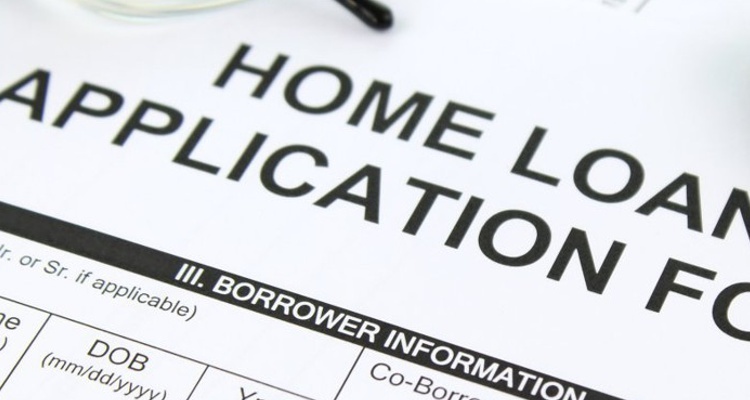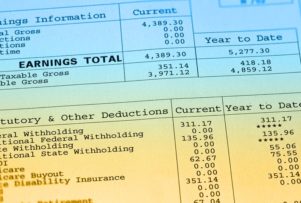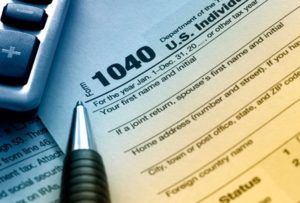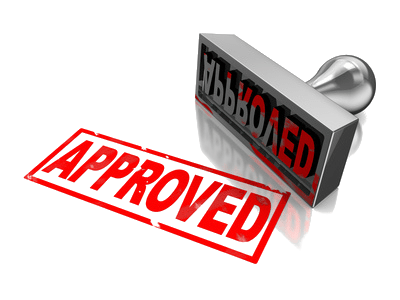Either one will give you at least some peace of mind knowing that you’re qualified for the loan amount needed to buy the home of your dreams, but there’s a big difference between the two. A “pre-qualification” is often just an informal discussion (usually by phone) between the buyers and a loan officer, where information is provided and considered in calculating a qualifying loan amount. The caveat is that nothing is verified or documented, and the loan officer is not the person with the final say in the matter. It’s really just an opinion, and will vary depending on the loan officer’s knowledge and experience. A “pre-approval”, on the other hand, is when all of the information and supporting documentation has been submitted to Underwriting, the department that actually renders loan approvals or denials.
Getting Pre-Approved
FOR A HOME LOAN
(Buyer Version)

The difference between being
As a result, loan pre-approvals carry much more weight. Consider if you were a seller reviewing three offers that have been written on your home. “Buyers A” haven’t even spoken to a lender yet, “Buyers B” spoke to a loan officer over the phone, who thinks they will possibly qualify, and “Buyers C” have already submitted all of their documentation, had their credit report run, downpayment verified, and have formally been pre-approved for the amount necessary to buy your home. The lender is simply waiting for them to find a suitable property to buy. If you were in the seller’s shoes, which offer would you accept? Without a doubt, the PRE-APPROVED buyer! This is why we recommend that the first step in the home buying process is always to get pre-approved first. It absolutely increases your chance of beating out the competition when buying a home.
Are pre-approvals
We’ve discussed why mortgage pre-approvals are so important when buying real estate, but we haven’t discussed how the real estate industry has integrated them into almost every transaction. Most listing agents nowadays specify in their listing that, whenever an offer is submitted to the seller, the agent representing the buyer shall also provide evidence of a reputable lender’s pre-approval. They also typically require the buyers FICO (credit) score and (POF) Proof of Funds showing that the buyers are not only creditworthy, but also have the necessary funds to complete the purchase. Gone are the days of finding out 60 days later that the buyer doesn’t qualify, and the seller has to start all over again. If you’re currently searching for a home, and haven’t been pre-approved, we suggest you give us a call to get the process started!
Choosing a
If you need help finding a mortgage company, we can help! Our company even has a separate mortgage division that does hundreds and hundreds of real estate loans every year. They offer virtually every type of real estate loan available! From FHA low downpayment and easy qualifying loans, to VA no-downpayment loans, to reverse mortgage loans for elderly borrowers, and tons of conventional loans to choose from. You can use any lender of your choice, but if you need help making that decision, let us know and we’ll help guide you!


Items to gather
In order to pre-approve you for a mortgage loan, the lender will need to review documentation pertaining to your employment, income, monthly bills, credit history, checking and savings accounts, other assets, and any child support or alimony payments/income that may apply. If you own other property, they’ll also need rental agreements showing the income from those properties, along with mortgage information for each one (including mortgage info for your current residence, if owned). If you’re self-employed, the lender will also need a copy of your most recent federal income tax returns for two years (1040’s only, as state tax returns aren’t necessary), along with a year-to-date profit and loss statement. Following is a list of items you can use as a guide to help gather the necessary information prior to your meeting with the lender.
Items Needed Checklist
1. Paycheck stubs covering the last 30 days
2. The last two years W-2’s from all employment
3. 2 months bank statements for all accounts (checking, savings, CD’s, etc.)
4. Recent statements for stocks, bonds, or other investments
5. If self employed, two years 1040’s or 1065’s (all schedules)
6. Final divorce decree if applicable (all pages) showing child support/alimony
7. Mortgage statements for all properties owned
8. Rental agreements on all properties owned (if applicable)
9. List of all creditors (monthly bills, not including utilities)
10. Bankruptcy papers (all schedules)
NOTE:
Some lenders may charge a nominal fee to run your credit report. This fee is usually somewhere between $15.00 – 30.00.







